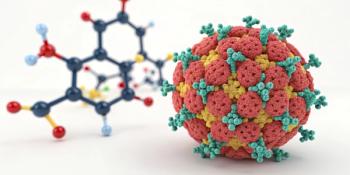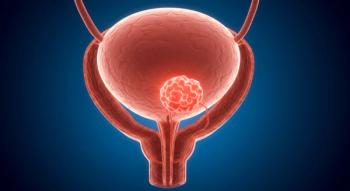
UC Davis Leads Region’s First Groundbreaking Clinical Trial for Bladder Cancer
The PIVOT-006 trial is part of a larger national effort to evaluate cretostimogene’s safety and effectiveness in bladder cancer.
Bladder cancer is one of the most common urological cancers, with nonmuscle invasive forms accounting for a significant portion of new diagnoses. In September, UC Davis Comprehensive Cancer Center announced it has become the first in the region to offer a pioneering clinical trial targeting intermediate-risk nonmuscle invasive bladder cancer (IR-NMIBC).
The study, known as PIVOT-006, is a phase 3 randomized controlled trial that compares the experimental drug cretostimogene against observation, aiming to improve outcomes and preserve the bladder in affected patients.
Patients with IR-NMIBC normally undergo a surgical procedure known as transurethral resection of the bladder tumor to remove visible cancerous tissue. Despite this intervention, many who undergo it face cancer recurrence, which necessitates ongoing monitoring through cystoscopy, a procedure involving the insertion of a tiny camera into the bladder via the urethra every three to six months.
Historically, about 70% of patients with IR-NMIBC could only wait, hoping their cancer would not return, while options for additional treatment remained limited. That’s where UC Davis comes in. Its new clinical trial aims to change that paradigm by introducing a novel immunotherapy approach that could reduce recurrence rates and save patients from frequent invasive procedures.
According to the UC Davis Comprehensive Cancer Center, the trial will center around cretostimogene grenadenorepvec, an engineered virus designed to specifically target and destroy bladder cancer cells. Unlike traditional treatments, cretostimogene is a laboratory-modified virus that can replicate within cancer cells and trigger a potent antitumor immune response. This dual action allows it to selectively kill cancerous cells while sparing healthy tissue, offering a promising new approach to bladder cancer management.
“Cretostimogene represents an exciting advancement in immunotherapy,” Thenappan Chandrasekar, M.D., a urologist and associate professor at UC Davis Department of Urologic Surgery, said in a statement. “Its ability to replicate within tumor cells and stimulate an immune response could significantly reduce recurrence and improve survival outcomes for patients with IR-NMIBC.”
In the trial, all participants will undergo standard tumor removal and then are randomized to either receive cretostimogene instillations (weekly for six weeks, then weekly for three weeks every three months for one year) or surveillance. Control patients may switch to treatment if they relapse.
The PIVOT-006 trial is part of a larger national effort to evaluate cretostimogene’s safety and effectiveness in bladder cancer and UC Davis is one of a select few sites across the country participating in the research. The overall study will compare outcomes between patients who receive the experimental cretostimogene therapy following surgery and those who are monitored without additional treatment.
If successful, the results could lead to a shift in how bladder cancer is treated in the future. Currently, the primary options involve surgery and the use of Bacillus Calmette-Guérin (BCG), a vaccine-derived immunotherapy. However, BCG has been in short supply for years due to manufacturing challenges, limiting access for many patients.
“This trial offers hope for patients who have historically had limited options,” Chandrasekar said, adding he believes this could be a game-changer. “While BCG has been effective for some, its availability issues mean many patients are left with few alternatives. If cretostimogene can reduce recurrence and potentially eradicate the disease, it could provide a much-needed treatment option and improve quality of life.”
The trial also offers a major step forward in personalized cancer therapy, leveraging the immune system’s power to fight cancer more effectively, he said. The hope is that this approach will not only reduce the frequency of invasive cystoscopies but also decrease the likelihood of cancer progression.
Newsletter
Get the latest industry news, event updates, and more from Managed healthcare Executive.























